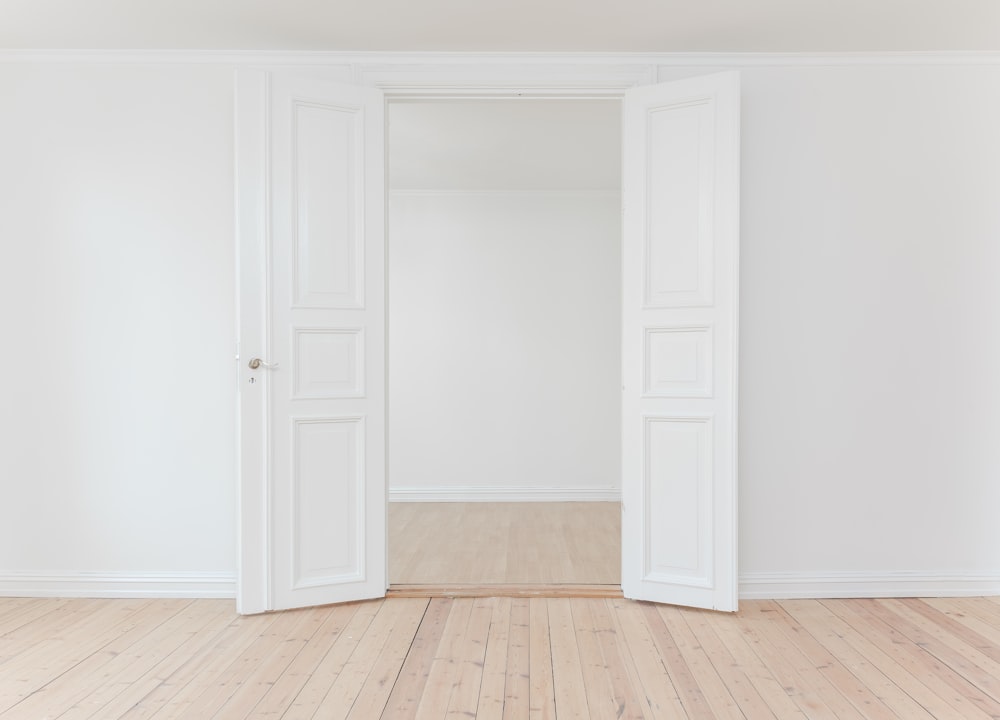Essential Building Envelope Maintenance Tips for Homeowners
Essential Building Envelope Maintenance Tips for Homeowners
Understanding the Building Envelope
The building envelope serves as the barrier between the interior and exterior environments of a structure. It includes elements such as walls, windows, doors, roofs, and foundations. Understanding the components of the building envelope is crucial for effective maintenance.
Regular Inspection and Maintenance
Regular inspection and maintenance of the building envelope are essential to identify and address potential issues before they escalate. Homeowners should schedule annual inspections to check for signs of damage, such as cracks, leaks, or deterioration, and promptly address any issues that arise.
Addressing Water Intrusion
Water intrusion is one of the most common issues affecting building envelopes. Even small leaks can lead to significant damage over time, including mold growth, structural deterioration, and compromised indoor air quality. Homeowners should prioritize addressing water intrusion issues promptly to prevent costly repairs down the line.
Sealing and Caulking
Sealing and caulking are crucial aspects of building envelope maintenance, as they help prevent air and water infiltration. Inspect windows, doors, and other openings regularly for gaps or cracks, and seal them with weather-resistant caulk or sealant as needed. This simple step can help improve energy efficiency and indoor comfort while preventing water damage.
Maintaining Exterior Surfaces
Exterior surfaces, such as walls and roofs, are exposed to the elements and require regular maintenance to stay in good condition. Clean exterior surfaces periodically to remove dirt, debris, and organic growth, which can compromise the integrity of the building envelope. Repair any damaged or deteriorating surfaces promptly to prevent further damage.
Ensuring Proper Drainage
Proper drainage is essential for protecting the building envelope from water damage. Ensure that gutters and downspouts are clear of debris and functioning properly to channel rainwater away from the structure. Grade the landscape around the foundation to promote water drainage away from the building and prevent pooling near the foundation.
Inspecting Roofing Materials
The roof plays a critical role in protecting the building envelope from water intrusion and other environmental factors. Inspect the roof regularly for signs of damage, such as missing or damaged shingles, flashing, or seals. Address any issues promptly to prevent water infiltration and prolong the lifespan of the roof.
Investing in Professional Inspections
While homeowners can perform routine maintenance tasks themselves, investing in professional inspections can provide added peace of mind and help identify potential issues that may go unnoticed. Consider hiring a qualified inspector to assess the condition of the building envelope and recommend any necessary repairs or improvements.
Prioritizing Energy Efficiency
In addition to protecting the structure from water intrusion and other damage, building envelope maintenance can also contribute to energy efficiency. Proper insulation, air sealing, and window treatments can help reduce energy consumption and lower utility bills. Consider investing in energy-efficient upgrades to enhance comfort and sustainability.
Staying Proactive and Prepared
Building envelope maintenance is an ongoing process that requires proactive attention and regular upkeep. By staying proactive and addressing maintenance tasks promptly, homeowners can protect their investment, maintain indoor
Essential Brick Home Care Maintenance Tips for Longevity
Essential Brick Home Care: Maintenance Tips for Longevity
Understanding the Importance of Maintenance
Brick homes exude timeless charm and durability, but to uphold their beauty and structural integrity, regular maintenance is essential. By understanding the significance of maintenance, homeowners can ensure their brick homes stand the test of time.
Exterior Inspection: A Critical Step
The first step in brick home maintenance is conducting a thorough exterior inspection. Check for signs of wear and tear, such as cracks, loose mortar, or water damage. Identifying issues early allows for prompt repairs, preventing potential damage and costly repairs down the line.
Cleaning Brick Surfaces: Removing Dirt and Debris
Maintaining clean brick surfaces not only enhances curb appeal but also prolongs the lifespan of the material. Regularly remove dirt, dust, and debris using a soft-bristled brush or low-pressure water wash. Avoid harsh chemicals or high-pressure washing, as these can damage the brick and mortar.
Repairing Mortar Joints: Preserving Structural Integrity
Mortar joints play a crucial role in the stability of a brick home. Over time, mortar can deteriorate due to weather exposure and age, leading to weakened structural integrity. Periodically inspect mortar joints and repair any cracks or gaps to prevent moisture penetration and further damage.
Sealing Brick Surfaces: Protecting Against Moisture
Applying a quality sealant to brick surfaces provides an additional layer of protection against moisture infiltration. Sealants help repel water, preventing damage caused by freezing and thawing cycles. Consult with a professional to determine the best sealant for your brick home and apply as needed.
Addressing Efflorescence: Tackling White Residue
Efflorescence, or the white powdery residue that forms on brick surfaces, is a common issue caused by water evaporating and leaving behind salt deposits. While efflorescence itself isn’t harmful, it can detract from the appearance of brick. Remove efflorescence using a mild detergent and water solution, followed by thorough rinsing.
Preventing Water Damage: Gutters and Drainage
Proper water drainage is essential for maintaining the integrity of a brick home. Ensure gutters are clear of debris and properly aligned to direct water away from the foundation. Consider installing downspout extensions or French drains to further protect against water damage.
Protecting Against Vegetation: Trim and Prune Regularly
Vegetation growing near a brick home can pose a risk to its integrity, as roots may infiltrate mortar joints and cause damage. Regularly trim and prune vegetation, keeping plants at least a foot away from the exterior walls. Additionally, consider installing barriers or landscaping features to prevent roots from encroaching on the home.
Monitoring Structural Stability: Seeking Professional Assessment
Periodically enlist the services of a professional inspector to assess the structural stability of your brick home. A trained eye can identify potential issues early on, allowing for proactive repairs and maintenance. Addressing structural concerns promptly can prevent further damage and ensure the longevity of your home.
Investing in Long-Term Maintenance: A Wise Choice
In conclusion, investing in the long-term maintenance of your brick home is a wise choice that pays dividends in the form of enhanced durability,
AAA Home Maintenance 101 Everything You Need to Know
Proactive Home Maintenance: Investing in the Longevity of Your Space
In today’s fast-paced world, where time is of the essence, it’s easy to overlook the importance of home maintenance. Yet, for homeowners, investing time and resources into proactive home maintenance is crucial for ensuring the longevity and value of their property. From preventing costly repairs to enhancing curb appeal, here’s why proactive home maintenance is an investment worth making.
Preserving Structural Integrity: The Foundation of Home Stability
The structural integrity of your home is its backbone. Regular inspections and maintenance of key structural components such as the foundation, roof, and walls are essential for preserving the stability and safety of your living space. Addressing issues such as cracks in the foundation or missing shingles early on can prevent more significant and costly repairs down the line.
Maintaining Functional Systems: Keeping Things Running Smoothly
From HVAC systems to plumbing and electrical, the functional systems within your home play a vital role in everyday comfort and convenience. Routine maintenance tasks such as changing air filters, inspecting for leaks, and testing smoke detectors not only ensure optimal performance but also contribute to a safer and more efficient living environment.
Enhancing Curb Appeal: Making a Lasting Impression
Your home’s exterior is the first thing guests and passersby notice, making curb appeal a significant factor in overall property value. Regular maintenance tasks such as lawn care, landscaping, and exterior cleaning can enhance the aesthetic appeal of your home, creating a welcoming and inviting atmosphere that reflects pride of ownership.
Protecting Against Environmental Factors: Weatherproofing for All Seasons
Mother Nature can be unpredictable, with weather extremes posing various challenges for homeowners. From sealing windows and doors to cleaning gutters and trimming trees, proactive measures to weatherproof your home can prevent damage from wind, rain, snow, and sun exposure, ultimately saving you time, money, and headaches in the long run.
Preventing Pest Infestations: Safeguarding Your Sanctuary
Unwanted pests such as rodents, insects, and termites can wreak havoc on your home’s structural integrity and pose health risks to occupants. Regular inspections, sealing entry points, and maintaining cleanliness are essential for preventing infestations and preserving the integrity of your living space.
Sustaining Indoor Air Quality: Breathing Easier
Indoor air quality is a crucial yet often overlooked aspect of home maintenance. Dust, allergens, and pollutants can accumulate over time, compromising the health and comfort of occupants. Routine tasks such as vacuuming, dusting, and changing air filters can improve air quality and create a healthier living environment for you and your family.
Increasing Energy Efficiency: Saving Money and Resources
Energy costs continue to rise, making energy efficiency a top priority for homeowners. Simple upgrades such as installing programmable thermostats, sealing drafts, and upgrading insulation can lower utility bills and reduce your home’s carbon footprint, all while enhancing comfort and sustainability.
Preserving Property Value: Investing in Your Future
Your home is one of your most significant investments, making its long-term value a priority. Proactive maintenance not only ensures the integrity and aesthetics



